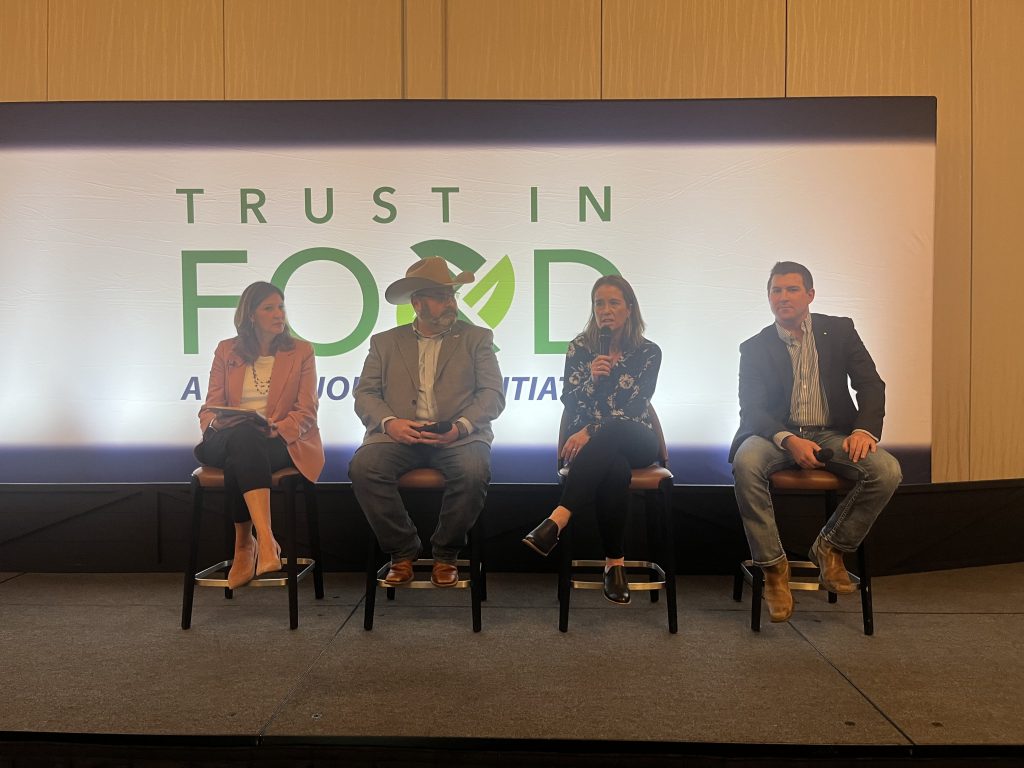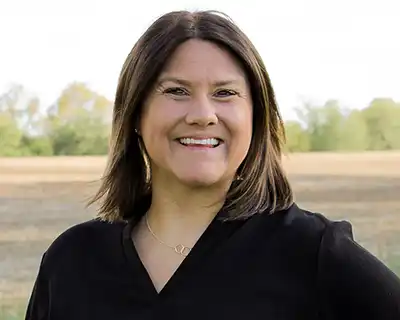Producers struggle to understand or see value in carbon markets, according to panelists of “Making Carbon Markets Work For Producers” at the Trust In Food Symposium in January.
“No one will tell farmers what game they’re supposed to be playing,” said Mitchell Hora, founder and CEO of Continuum Ag and a seventh-generation farmer.
He was joined on the panel by Chad Ellis, CEO of Texas Agricultural Land Trust and founding chair of Trust In Beef, and Liz Hunt, head of sustainable and responsible business at Syngenta.
The panel agreed on the challenges: Producers see those with less interest in stewardship as being rewarded more for conservation practices, largely due to additionality requirements; there are broken or misaligned models for incentives and messaging; and there’s a lack of enabling strategies that make climate-smart practices a clear winning play for producers.

Most of all, each panelist spoke to the many unknowns about the present and future of the carbon marketplace—and the confusion this brought the farmers intended to participate. After his farmer leader commentary on Trust in Food’s October 2022 carbon report, Hora was ready to speak more about what that confusion looked like to a farmer’s eyes. He’d come prepared with a metaphor ready at hand.
“We’re seeing this everywhere,” said Hora, who is also a member of the Farm Journal Carbon Council. “What we need to do to move carbon past the starting line is to show farmers the scoreboard and tell them exactly what they need to do to earn their points.”
Trust In Food’s longtime interest in the Human Dimensions of Change (i.e., psychographic factors that can either forestall or encourage new behaviors) provides a useful lens through which to view this farmer perspective. Hora explained that for decades, “high yield” has been the game played by most farmers, and producers have clear line of sight on how strategies like “technological improvements” and “changes to inputs” help to efficiently maximize their scores. In return for high yields, profit increases, and greater market opportunities emerge for high-ranking players. It’s easy to infer that the yield game’s strong link between intangible and tangible, profit-related benefits offers a compelling, financially sustainable framework for farmers to judge their results against their peers… or even tackle the personal challenge of “make the numbers go up.”
Hora’s conclusion for the group was simple: The current carbon landscape feels broken to farmers because the rules to win are buried under “check-the-box” payments by practices; offset sales that are generally paid out to farmers by acre instead of by carbon reductions on their operations; and a mistrust-inspiring lack of clarity around how their incentives as vendors align with the incentives of those paying them for climate-smart services.
Several ideas were put forward by the panel to begin to address these concerns. Most dramatically, a supply chain-side model was suggested, overhauling current payment schemes by targeting producers with scaling premiums per unit of commodities sold, if, of course, decreased carbon intensity for said commodity’s production can be verified.
Ellis and Hunt also emphasized that the game must become easier and more transparent to play, with a simplified “shallow end of the swimming pool” approach to ease into data collection, strong protections for data privacy, and clear explanations of what the data that tells farmer stories is used for—and why the answer to the latter question is “greater ROI” and not “future downward price pressure.”
The one hard truth that all panelists agreed on, worthy of continued reflection as the Climate Smart Commodity grants are finalized this spring, is that the carbon metrics and transactions farmers have access to today don’t yet answer one key question: “What compelling improvements could I make to my whole operation if only I knew my score in the carbon game?”
Until supply chain partners discover how to reach out to producers and speak to that point in their own language, many could decline to play. Trust In Food is ready to support our partners in learning to do exactly that.
Learn more on barriers, opportunities and producer attitudes on carbon and ecosystem services in Trust In Food’s “Ready or Not? Agricultural Carbon Markets and U.S. Farmers” report at www.trustinfood/carboninsights.



